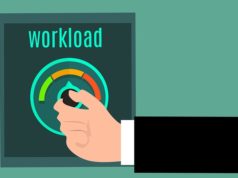
6 Ways to Work Smarter Not Harder
1. Get your biggest things done before 9:00 a.m. As your morning goes, so goes your day. If you start slow, you will likely end slow as well. If you start you day with positive productive actions and ideas, you’ll gain momentum that will carry through. What you do first matters. If you get up early, exercise and aim to accomplish big things before others even arrive, your personal productivity will skyrocket.
2. Own up to your “junk hours.” Junk hours, like junk food, provide short-term pleasure but cause long-term pain. Junk time can include such things as checking email in order to avoid other tasks, chasing rabbit trails on the Internet, or attending unnecessary meetings. “You need to identify when you’re merely going through the motions of work, versus when real work is doing done,” says Core. Everyone has junk hours. The object is to exchange some of those low-value activities for ones that are of greater value to you and your business.
3. Make a big-box checklist. Of course you have a to-do list. But does it help you identify what’s really important to do, rather than what’s simply urgent? Try this: As you draw up your to-do list, make a box by each task – the bigger the box, the more important the task. Then focus on doing your “big box” tasks first. This will keep you from being distracted by each shiny object (task) that wanders by and focus more on what really matters. Your day is successful if most of the big boxes are checked off at the end.
4. Change your patterns. Breaking old habits to become more productive often requires that you change long-established patterns. As Core says, changes that build momentum are rooted in decisions, not tasks. In other words, you must decide you want to change before you can do it. For example, if you want to wake up an hour earlier to jump start you day, you’ll simply have to change the time your alarm rings and the time you go to bed. If you want to be more productive, try replacing procrastination time with scheduled breaks. In both cases, you’re simply changing the way you perform existing tasks, not adding new ones.
5. Invest in improvements now to improve things later. Everyone has skill gaps that can damage effectiveness. Maybe it’s simply that you are really slow on a keyboard, don’t get social media, or have poor computer skills. Identify your worst – but correctable – weaknesses and commit to doing something about them. That might mean taking an online course, or simply watching an instructional video. In the end, you’ll have improved your productivity and established a new pattern.
6. Forgive yesterday so you can work better today. Many successful business owners are hard on themselves about things they wish they’d done better. They are their own worst critics, spending scarce time lingering on mistakes. “Treat yourself with the same compassion you’d extend to others,” says Core. “If it helps, follow the two-hour rule. When you make a mistake, give yourself two hours to do whatever you think will help ease the disappointment. When the time is up, start moving forward again.”








